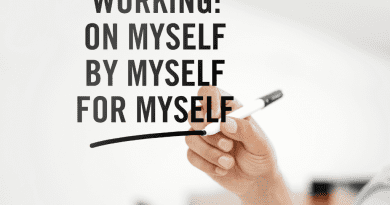11 Ways to Reduce Stress and Anxiety: Proven Methods That Work
We all know how it feels to be stressed out. We feel overwhelmed, anxious, and like we can’t take another step. And unfortunately, stress is a part of life. But that doesn’t mean that we have to just accept it and deal with the negative consequences. There are many ways how to reduce stress and anxiety, and in this blog post, we will discuss 11 of them!
Here are the 10 ways how to reduce stress and anxiety:
– Get organized
– Set realistic goals
– Make time for yourself
– Exercise
– Eat healthy
– Get enough sleep
– Take breaks during the day
– Connect with loved ones
– Find a hobby
– Seek professional help
Now let’s go into details on each of these.
1. Get organized:
One of the best ways how to reduce stress and anxiety is to get organized. This could mean creating a daily or weekly schedule to help you keep track of your commitments, or it could mean decluttering your home or office to reduce the number of visual stimuli that you’re dealing with on a daily basis.
When you’re feeling stressed, it can be helpful to take a few minutes to yourself to tidy up your space and get rid of any unnecessary clutter. This will help you to feel more in control and less overwhelmed.
Being organized can help reduce stress and anxiety in your life. When you’re organized, you know what you have to do and when you have to do it. This can help you feel more in control of your life and less overwhelmed.
Tip: Make a to-do list each day and try to stick to it.
2. Set realistic goals:
One of the biggest sources of stress and anxiety is setting unrealistic goals. We often put a lot of pressure on ourselves to achieve things that are simply not possible. This could be a work project, a fitness goal, or anything else that we set our sights on.
When we set unrealistic goals, we’re setting ourselves up for disappointment and frustration. This can lead to even more stress and anxiety. So, how can we avoid this?
It’s important to set realistic goals that are achievable. This means breaking down big goals into smaller, more manageable pieces. It also means being realistic about how much time and energy you have to devote to achieving your goals.
Tip: Make sure your goals are SMART: Specific, Measurable, Achievable, Realistic, and Timely.
16 Proven Ways How to Progress in Anything
3. Make time for yourself:
In our busy lives, it’s easy to forget to make time for ourselves. We often put our work, family, and other obligations first and we end up feeling overwhelmed and stressed. But if we don’t make time for ourselves, we can’t be our best selves for the people in our lives.
So, how can you make time for yourself when you’re stressed? One way is to schedule it into your day. If you can, take 30 minutes each day for yourself. During this time, you can do whatever you want or need to relax. This could mean reading, taking a bath, going for a walk, or listening to music.
Another way to make time for yourself is to say no to things that you don’t have time for or that you don’t want to do. We often put too much on our plates and then we end up feeling even more stressed. So, if you’re feeling overwhelmed, take a look at your schedule and see what you can say no to.
Tip: Find something that you enjoy doing and make time for it every day, even if it’s just for a few minutes.
4. Exercise:
Exercise is a great way to reduce stress because it releases endorphins, which have mood-boosting effects. When we’re stressed, we often want to just curl up in a ball and hide from the world. But exercise can actually help us to feel better and to cope with stress in a more positive way.
If you don’t have time for a full workout, there are other ways to get moving and reduce your stress levels. Taking a brisk walk in nature, going for a swim, or even just doing some stretches at your desk can help to reduce stress and improve your mood.
Tip: Start with just a few minutes of exercise each day and gradually increase the amount of time you spend exercising.
5. Eat healthy:
We all know that we should be eating healthy, but sometimes it’s easier said than done. When we’re stressed, we often turn to comfort food or junk food to make us feel better. But this is actually a vicious cycle because eating unhealthy food can make our stress levels worse. So, how can we eat healthy when we’re stressed?
One way is to make sure that you have healthy food options readily available. This could mean keeping a stash of healthy snacks at your desk or in your car or making sure that you always have some fruits and vegetables in the fridge. That way, when you’re feeling stressed and your stomach starts growling, you won’t be as tempted to make an unhealthy choice.
Another way to eat healthily is to plan ahead. If you know that you have a busy week coming up, take some time on the weekend to cook some healthy meals or snacks that you can easily grab during the week. This will save you time and money, and it will help you to avoid making unhealthy choices when you’re feeling stressed.
6. Get enough sleep:
Sleep is another one of those things that’s often easier said than done. When we’re stressed, we often have trouble falling asleep or staying asleep. This can lead to even more stress because now we’re not only dealing with the stressors in our lives but we’re also exhausted.
To get enough sleep, it’s important to establish a bedtime routine and stick to it as much as possible. This means going to bed and waking up at the same time each day, even on weekends. It also means avoiding caffeine and screens (including your phone) in the hours leading up to bedtime. Creating a relaxing environment in your bedroom can also help you to fall asleep more easily.
7. Take breaks during the day:
When we’re stressed, it can feel like we need to just power through and get everything done as quickly as possible. But this can actually make our stress levels worse. Instead of trying to do everything at once, it’s important to take breaks during the day.
This doesn’t mean that you should take a two-hour break to watch TV or scroll through social media. But taking five or ten minutes to yourself to do something that you enjoy, like reading, listening to music, or taking a short walk, can help to reduce your stress levels and improve your productivity.
8. Connect with loved ones:
When we’re stressed, it’s easy to withdraw from our loved ones and isolate ourselves. But this can actually make our stress levels worse. Instead, try to connect with your loved ones, whether it’s through a phone call, text message, or video chat. Talking to someone who cares about you can help to reduce your stress levels and make you feel supported.
If you don’t have any close friends or family members to talk to, there are also many online communities that can provide support. For example, there are forums and chat rooms for people with similar interests or experiences. There are also groups for people who are going through a tough time, like parents of young children or people who are dealing with a chronic illness.
9. Find a hobby:
Meditation is a form of mindfulness that can help to reduce stress. Mindfulness is the practice of being present in the moment and focusing on your thoughts, feelings, and sensations without judgment.
There are many different ways to meditate, but one of the simplest is to focus on your breath. Sit in a comfortable position and close your eyes. Then, focus on your breath and count each inhale and exhale. If your mind wanders, simply bring your attention back to your breath.
You can meditate for as little or as long as you like, but even a few minutes of meditation can help to reduce stress.
How to Find Your Interests in Life: 16 Steps
10. Meditate:
Having a hobby can help to reduce stress because it provides a way to take a break from the stressors in your life. It can also give you a sense of accomplishment and pride. And it can be a great way to connect with other people who have similar interests.
Some ideas for hobbies that can help to reduce stress include gardening, hiking, biking, painting, photography, cooking, and baking. Find something that you enjoy and make time for it in your schedule.
11. Seek professional help:
If you’re struggling to cope with stress, it’s important to seek professional help. A therapist can help you to identify the sources of your stress and teach you how to deal with them in a healthy way. If your stress is due to a specific event, like a death or divorce, counseling can also be very helpful.
Don’t try to deal with your stress alone. Seek professional help if you’re struggling to cope.
What’s the takeaway?
Reducing stress and anxiety can be difficult, but there are many things that you can do to make it easier. By following the tips in this article, you’ll be on your way to a less stressful life.
Do you have any other tips on how to reduce stress and anxiety? Share them in the comments below!
If you’re struggling with stress or anxiety, don’t hesitate to seek professional help. A therapist can teach you how to cope in a healthy way.
Get more daily on your newsfeed at the Undefeated Motivation FB page or Undefeated Motivation IG page.




